| Federal Assembly of the Czechoslovak Federative Republic Czech: Federální shromáždění ČSFR Slovak: Federálne zhromaždenie ČSFR | |
|---|---|
| Legislative body in Czechoslovakia | |
 | |
| Type | |
| Type | Bicameral |
| Houses | Senate Chamber of Deputies |
| History | |
| Established | 25 May 1946 |
| Preceded by | Constituent National Assembly |
| Leadership | |
President of the Senate |
|
Speaker of the Chamber of Deputies |
|
| Structure | |
| Seats | 450 150 Senators 300 Deputies |
 | |
 | |
| Elections | |
Senate voting system |
First-past-the-post in single-member constituencies |
Chamber of Deputies voting system |
Party-list proportional representation D'Hondt method |
| Meeting place | |
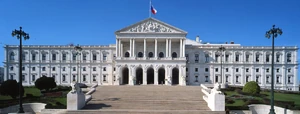 | |
| Federal Assembly Švehlovo Náměstí 118 00 Praha 7-Letná Letná Hill, Prague | |
The Federal Assembly (Czech: Federální shromáždění, Slovak: Federálne zhromaždenie) is the legislative body of Czechoslovakia, seated on Letná Hill, Prague.
History[]
The tradition of modern parliamentarianism in the Bohemian lands dates back to times of the Austrian Empire (and then Cisleithanian part of Austria-Hungary), where the Imperial Council (Reichsrat, Říšská rada) was created in 1861.
After proclamation of Czechoslovakia's independence on 28 October 1918 the Revolutionary National Assembly (Czech: Revoluční národní shromáždění, Slovak: Revolučné národné zhromaždenie), established on 14 November 1918, adopted key laws related to the establishment of an independent state and the constitution of the Czechoslovak Republic. With the new Constitution of 1920, the National Assembly (Czech: Národní shromáždění, Slovak: Národné zhromaždenie) was established as the new Czechoslovak parliament, undertaking legislative duties both of the Imperial Council and State Diets (Bohemian, Moravian, Silesian). It consisted of a Chamber of Deputies with 300 members (housed in the Rudolfinum) and a Senate with 150 members (housed in the Thun Palace).
On 2 October 1938, the National Assembly held its final session, during which it declared Czechoslovakia's readiness to defend itself against invading German forces. On 2 November 1938, President Edvard Beneš dissolved the Chamber of Deputies and the Senate, which were then, according to plan, to resume their activity within two months after the end of the Second World War. During wartime, the Czechoslovak National Council (Československá národní rada) was established to represent the legislature as part of the Czechoslovak Government in Exile.
Following World War II, Czechoslovakia held elections for a Constituent National Assembly, which met for the first time on 28 October 1945. The most important act of the Constituent National Assembly was the adoption of the Federative Constitution of 1946. The main virtue of the constitutional charter was its moderation, largely achieved through the balancing of political forces which secured the support of representatives of the right and the left, which was supported by popular demand for immediate reform. On 11 March 1946 the National Assembly's constitutional committee submitted to it the draft constitution and bills for five constitutional laws. On 15 March, when the National Assembly began to debate the draft constitutional laws, a preamble to the constitution expressing the principles and ideals of its creators was adopted. On 24 March 1946 the constitution was unanimously approved by the National Assembly.
The drafting and adoption of the permanent federal constitution completed the task of the Constituent National Assembly, and was dissolved on 20 May 1946, and elections to the new Federal Assembly were held a few days later, on 25 May. The first meeting of the newly elected Federal Assembly (joint session of both houses) took place on 18-19 June 1946 in the Spanish Hall at Prague Castle.
After World War II, the Chamber of Deputies and Senate were housed in the Rudolfinum and the Thun Palace while the new Federal Assembly was completed on Letná Hill in 1955. The first session in the new building took place on 20 October 1955.
Constitutional powers[]
The structure and powers of the Federal Assembly, the method of its decision-making and the method of electing its members and the conditions of their mandate are stipulated in the Constitution of the Czechoslovakia of 1946.
The Federal Assembly:
- has the right to modify the Constitution
- ratifies international treaties
- expresses confidence or no confidence in the government (Chamber of Deputies)
- approves the state budget (Chamber of Deputies)
- may set up a commission of inquiry to investigate matters of public interest (Chamber of Deputies)
- decides on the declaration of a state of war in case of attack or fulfillment of international obligations and decides on the participation of Czechoslovakia in NATO
- approves presence of foreign military forces in Czechoslovakia or a dispatch of Czechoslovak military forces abroad
- agrees with the appointment of judges of the Constitutional Court (Senate)
Chamber of Deputies[]
| Chamber of Deputies of the Federal Assembly of the Czechoslovak Federative Republic Czech: Poslanecká sněmovna federální shromáždění Československé federativní republiky Slovak: Poslanecká snemovňa federálne zhromaždenie Československej federatívnej republiky | |
|---|---|
 | |
| Type | |
| Type | |
| Established | 25 May 1946 |
| Leadership | |
Speaker of the Chamber of Deputies |
|
| Structure | |
| Seats | 300 Deputies |
 | |
Political groups |
Government (__)
Supported by (__)
Opposition (__) |
| Elections | |
| Party-list proportional representation D'Hondt method | |
Last election |
2017 |
Next election |
2021 |
| Meeting place | |
 | |
| Federal Assembly Švehlovo Náměstí 118 00 Praha 7-Letná Letná Hill, Prague | |
The Chamber of Deputies, officially the Chamber of Deputies of the Federal Assembly (Czech: Poslanecká sněmovna federální shromáždění, Slovak: Poslanecká snemovňa federálne zhromaždenie), is the lower house of the Federal Assembly.
The members of the 300-seat house serve for four-year terms and are elected using the party-list proportional representation system.
Powers[]
The primary role of the Chamber of Deputies is to control the government and pass laws. The Members of Parliament (MPs) themselves have a legislative right of initiative (not an exclusive one). Laws are first passed by the Chamber of Deputies. After that, the bill is submitted to the Senate. If the Senate takes a negative position, it can be overruled by the Chamber of Deputies with an absolute majority of all MPs. The consent of both chambers is only required in particularly important situations. This area includes, in particular, the passing of constitutional laws, the electoral law, the election of the president (until 1968), the declaration of a state of war or the sending of troops abroad. The approval of the Chamber of Deputies is also required for some international treaties. Furthermore, the parliament proclaims the state of war in the event of an enemy attack or if international military alliance obligations have to be fulfilled.
The Chamber of Deputies controls the activities of the Government, the Prime Minister and of subsidiary executive bodies. Voting on confidence or non-confidence in the Government is thus one of the most important powers. Another aspect of the Chamber of Deputies' control of the Government are regular oral question periods and written interpellations (written questions put to Members of the Government), in which Deputies may ask ministers questions in connection with the exercise of their cabinet functions. Members of Government may be required to be present at meetings of bodies of the Chamber of Deputies (at committee meetings, for example). Deputies may also establish investigative commissions in order for certain matters to be investigated in an independent manner.
The Chamber of Deputies has power to:
- discuss and adopt bills,
- adopt, in conjunction with the Senate, the Electoral Act, the Act on the Principles of Mutual Collaboration and Communication between both Houses of the Parliament and of Collaboration and Communication between both Houses of the Parliament and Third Parties and the Act on the Rules of Procedure of the Senate,
- adopt a resolution on the Act on the State Budget,
- adopt a resolution on the Final State Account,
- approve legal measures adopted by the Senate,
- deliberate international treaties which require parliamentary approval and express such approval,
- adopt a joint resolution with the Senate on the declaration of war,
- authorize operations of foreign armed forces within the territory of Czechoslovakia (in conjunction with the Senate),
- authorize operations of Czechoslovak armed forces outside the territory of Czechoslovakia (in conjunction with the Senate),
- adopt a joint resolution with the Senate that the President of the Republic can no longer exercise his office for serious reasons,
- supervise governmental activities, discuss confidence in government and take a vote on no-confidence in the government,
- discuss the response of the government and its members to written interpellations of the Deputies included in the Chamber’s programme,
- recommend the appointment and dismissal of the president and vice-president of the Supreme Audit Office to the President of the Republic,
- elect and dismiss the members of the Supreme Audit Office,
- elect and dismiss the president and vice-presidents of the Chamber of Deputies and specify the number of vice-presidents,
- establish committees and specify the number of their members,
- establish commissions and specify the number of their members,
- establish commissions of inquiry and specify the number of their members,
- approve the persons to chair individual committees after they have been elected by the committees,
- elect the chairpersons of committees and propose the election of new chairpersons of committees if the committees do not elect their chairpersons themselves,
- agree with the extradition of a Deputy for criminal proceedings,
- ascertain the Deputies’ appeals against the results of disciplinary proceedings (Article 16) or against the decisions of the President of the Chamber of Deputies to impose disciplinary measures (Article 19, Section 2),
- approve the principles applicable to the use of allowances granted to individual political groups in compliance with Article 78, Sections 2 and 4,
- adopt resolutions on opinions concerning the acts and documents proposed by the European Communities and the European Union,
- to approve the acquisition of assets by the Czechoslovak Consolidation Agency in return for payment proposed by the government if the amount of such payments exceeds CZK 1 billion in one calendar year.
Elections[]
Elections shall be held by secret ballot on the basis of universal, equal and direct suffrage, according to the principle of proportional representation. Every citizen of the Czechoslovak Republic who has reached the age of 18 and is not deprived of his or her right to vote has the right to vote. Every citizen over the age of 21 with the right to vote has the right to be elected.
Details are set by the electoral law. It does not have the rigidity of constitutional law and it is therefore possible to change it almost like ordinary law. The only difference in the legislative process is the condition that both chambers of the Federal Assembly must agree to it. In the case of the electoral law, the Chamber of Deputies cannot override the Senate's negative opinion. Nevertheless, changes to the electoral law are frequent.
The 300 members of the Chamber of Deputies were elected from 25 multi-member constituencies (each usually electing between five and 25 members) using open list proportional representation, in which they could give preferential votes for up to four candidates on their chosen list. Seats were allocated using the d'Hondt method, with a electoral threshold at 4% threshold for single parties and 8% threshold for coalitions (requirements waived for national minorities). Should a party have 151 or more deputies in the Chamber of Deputies, it has an absolute majority and can thus govern autonomously, without the need for support from other parties. The constitution can be amended with a super majority of two-thirds, or 301 members of the Federal Assembly.
Current standing[]
| Affiliation | Deputies | |||||
|---|---|---|---|---|---|---|
| Results of the 2017 election |
As of 9 April 2024 |
Change | ||||
| Parliamentary clubs | ||||||
| Czechoslovak Social Democratic Party | ▬ | |||||
| Republican Party | ▼ 1 | |||||
| Free Democrats | ▬ | |||||
| ČSL/SĽS | Czechoslovak People's Party | ▬ | ||||
| Slovak People's Party | ▬ | |||||
| Liberal Democratic Party | ▬ | |||||
| Communist Party of Czechoslovakia | ▬ | |||||
| Green Party | ▬ | |||||
| Czechoslovak National Social Party | ▬ | |||||
| Non-inscrits/Independents | ||||||
| Independents | — | 1 | ▲ 1 | |||
| National minorities | ||||||
| Sudeten German People's Party | 4 | 4 | ▬ | |||
| Party of the Hungarian Community | 4 | 4 | ▬ | |||
| Total members | 300 | 300 | ▬ | |||
| Vacant | — | 0 | ▬ | |||
| Total Seats | 300 | |||||
Dissolution[]
Article 35 of the Constitution foresees four situations in which the President is given the possibility to dissolve the Chamber of Deputies. The possible fulfilling of one of the four situations still does not mean automatic dissolution of the Chamber of Deputies, since the Constitution in the situation of a similar crisis leaves it up to the discretion ofthe President whether to take action or not
- the Chamber of Deputies fails to vote confidence in a newly appointed Government the Prime Minister whereof was appointed by the President on the proposal of the Chairman of the Chamber of Deputies;
- the Chamber of Deputies has not decided on a Government Bill the consideration whereof the Government tied to the question of confidence;
- the session of the Chamber of Deputies has been recessed for a longer than admissible term (120 days); and
- the Chamber of Deputies has not had a quorum for a period longer than three months although its session was not recessed and although during the said period it had been repeatedly convened to meet.
During the dissolution of the Chamber of Deputies, the Senate acquires the power to take legal measures in urgent matters.
When the Chamber of Deputies have been dissolved, the mandate of the elected deputies expire and new elections must be held within sixty days. However, the Chamber of Deputies cannot be dissolved three months before the end of its four-year term.
Organisation[]
Presidium[]
The presidium is chaired by the President of the Chamber of Deputies (Czech: Předseda Poslanecké sněmovny federální shromáždění, Slovak: Predseda Poslaneckej snemovne federálnej zhromaždenia), consisting of the president and four vice presidents.
| Office | MP | Parliamentary club | Period in office | ||
|---|---|---|---|---|---|
| Assumed office | Left office | ||||
| President | Jan Hamáček | ČSSD | 2017 | Incumbent | |
| 1st Vice President | Jaroslava Pokorná Jermanová | RS | 2017 | Incumbent | |
| Vice President | Radek Vondráček | ČSNS | 2017 | Incumbent | |
| Vice President | Vojtěch Filip | KSČ | 2017 | Incumbent | |
| Vice President | Tomio Okamura | SD | 2017 | Incumbent | |
Party groups[]
Standing committees[]
The members of the Chamber of Deputies are allocated into fourteen standing committees, of which thirteen are related to specific political topics. The last is the Standing Committee on Scrutiny and Constitutional Affairs. The standing committees have a portfolio that covers that of one or more government ministers.
| Committee | Chair | Chair's party | |
|---|---|---|---|
| Finance and Economic Affairs | [[Wikipedia:|]] | ČSSD | |
| Foreign Affairs | Ondřej Veselý | ČSSD | |
| Defence | Jana Černochová | RS | |
| European Affairs | Tomáš Valášek | SĽS | |
| Business and Industry | [[Wikipedia:|]] | RS | |
| Education and Research | [[Wikipedia:|]] | ČSNS | |
| Energy and the Environment | [[Wikipedia:|]] | SZ | |
| Agriculture | [[Wikipedia:|]] | ČSSD | |
| Health and Care Services | [[Wikipedia:|]] | KSČ | |
| Justice | [[Wikipedia:|]] | SD | |
| Labour and Social Affairs | Jan Richter | ČSSD | |
| Regional Development and Public Administration | [[Wikipedia:|]] | ČSL | |
| Constitutional and Legal Affairs | Marek Benda | RS | |
| Transport and Communications | [[Wikipedia:|]] | ČSSD | |
Economic Committee Radim Fiala SPD [16]
Audit Committee Roman Kubicek YES [16]
Credentials and Immunities Committee Stanislav Grospič KSČM [16]
Organizing Committee Radek Vondracek YES [16]
Committee on Petitions Helena Valkova YES [16]
Committee on Budgets Miloslava Vostrá KSČM [16]
Constitutional and Legal Committee Marek Benda ODS [16]
Electoral Committee Stanislav Berkovec YES [16]
Security Committee Radek Koten SPD [16]
Committee on European Affairs Ondřej Benešík KDU-ČSL [16]
Defense Committee Jana Černochová ODS [16]
Social Policy Committee Radka Maxová YES [16]
Committee on Science, Education, Culture,
Youth and Sports unelected - [16]
Committee on Public Administration and Regional Development Ivan Bartoš Pirates [16]
Committee on the Environment Dana Balcarová Pirates [16]
Committee on Health Věra Adámková YES [16]
Foreign Affairs Committee Ondřej Veselý CSSD [16]
Committee on Agriculture Jaroslav Faltynek YES [16]
Speakers of the Chamber of Deputies[]
| Name | Portrait | Entered office | Left office | Legislature term | Political party | Notes | |
|---|---|---|---|---|---|---|---|
| Jan Malypetr (1876–1947) |
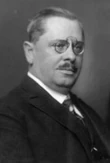
|
1946 | 1947 † | 1 | RS | Died in office. | |
| Jozef Lettrich (1905–1969) |
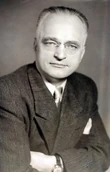
|
1947 | 1950 | RS | |||
| Stanislav Broj (1901–1980) |
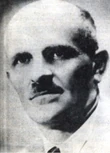
|
1950 | 1954 | 2 | RS | ||
| 1954 | 1958 | 3 | |||||
| Oldřich John (1907–1961) |

|
1958 | 1961 | 4 | ČSSD | ||
| Ján Ursíny (1896–1972) |
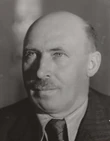
|
1961 | 1965 | 5 | RS | ||
| Antonín Pospíšil (1903–1973) |
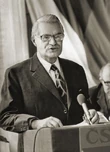
|
1965 | 1969 | 6 | ČSL | ||
| Bohumil Laušman (1903–1985) |
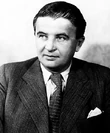
|
1969 | 1972 | 7 | ČSSD | ||
| Soňa Pennigerová (1928–) |
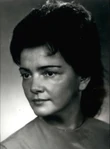
|
1972 | 1976 | 8 | ČSSD | First woman to hold the office. | |
| Ivo Ducháček (1913–1988) |

|
1976 | 1980 | 9 | ČSL | ||
| Michal Chudík (1914–2005) |

|
1980 | 1983 | 10 | ČSSD | ||
| Věroslav Sláma (1930–2018) |
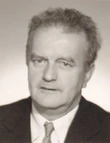
|
1983 | 1991 | 11 | RS | ||
| 12 | |||||||
| Ivan Gašparovič (1941–) |
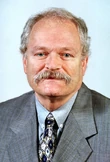
|
1991 | 1995 | 13 | RS | ||
| Petra Buzková (1965–) |

|
1995 | 1999 | 14 | ČSSD | ||
| Ivan Langer (1967–) |

|
1999 | 2002 | 15 | RS | ||
| Lubomír Zaorálek (1956–) |

|
2002 | 2006 | 16 | ČSNS | ||
| Ľudovít Kaník (1965–) |

|
2006 | 2010 | 17 | RS | ||
| Miroslava Němcová (1952–) |

|
2010 | 2013 | 18 | RS | ||
| Jan Hamáček (1978–) |

|
2013 | 2017 | 19 | ČSSD | ||
| 2017 | Incumbent | 20 | |||||
Senate[]
| Chamber of Deputies of the Federal Assembly of the Czechoslovak Federative Republic Czech: Senát federální shromáždění Československé federativní republiky Slovak: Senát federálne zhromaždenie Československej federatívnej republiky | |
|---|---|
 | |
| Type | |
| Type | |
| Established | 25 May 1946 |
| Leadership | |
President of the Senate |
|
| Structure | |
| Seats | 150 Senators |
 | |
Political groups |
|
| Elections | |
| First-past-the-post in single-member constituencies | |
Last election |
2017 |
Next election |
2021 |
| Meeting place | |
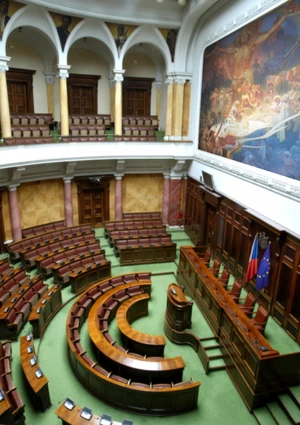 | |
| Federal Assembly Švehlovo Náměstí 118 00 Praha 7-Letná Letná Hill, Prague | |
The Senate of the Federal Assembly (Czech: Senát Federálního shromáždění), usually referred to as Senate, is the upper chamber of the Federal Assembly.
Structure[]
The Senate is composed of 150 senators (75 from each republic) who are elected for a term of four years in general election and chosen in one-seat constituencies. A candidate for the Senate does not need to be on a political party's ticket (unlike in the Chamber of Deputies).
Powers[]
The Senate can delay a proposed law which was approved by the Chamber of Deputies but this veto can be overridden by an absolute majority (i.e. at least 151 of all 300 members) of the Chamber of Deputies in a repeated vote. The Senate, however, cannot be overridden when it votes on electoral law, constitutional law and on international treaties. Its members also participate in specialised committees and commissions.
The Senate decides on confirmation of judges of the Constitutional Court, proposed by the President. It often uses this power to block unacceptable nominants and may propose new laws. However, the Senate does not get to vote on the country's budget or on confidence in the government, unlike the Chamber of Deputies.
The Senate has one President and four vice-presidents. The President of the Senate is the second-highest official of Czechoslovakia for ceremonial purposes, after the President of the Republic, but without much real political power.
Since the adoption of the Treaty of Lisbon, the Senate also has the right to report issues about option and implementation of European legislation in Czechoslovakia to the central authorities of the European Union.
Elections[]
Current standing[]
| Affiliation | Senators | |||||
|---|---|---|---|---|---|---|
| Results of the 2017 election |
As of 9 April 2024 |
Change | ||||
| Parliamentary clubs | ||||||
| Czechoslovak Social Democratic Party | ▬ | |||||
| Republican Party | ▼ 1 | |||||
| Free Democrats | ▬ | |||||
| ČSL/SĽS | Czechoslovak People's Party | ▬ | ||||
| Slovak People's Party | ▬ | |||||
| Liberal Democratic Party | ▬ | |||||
| Communist Party of Czechoslovakia | ▬ | |||||
| Green Party | ▬ | |||||
| Czechoslovak National Social Party | ▬ | |||||
| Non-inscrits/Independents | ||||||
| Independents | — | 1 | ▲ 1 | |||
| National minorities | ||||||
| Sudeten German People's Party | 1 | 1 | ▬ | |||
| Party of the Hungarian Community | 1 | 1 | ▬ | |||
| Total senators | 150 | 150 | ▬ | |||
| Vacant | — | 0 | ▬ | |||
| Total Seats | 150 | |||||
Organisation[]
Presidium[]
The presidium is chaired by the President of the Chamber of Deputies (Czech: Předseda Poslanecké sněmovny federální shromáždění, Slovak: Predseda Poslaneckej snemovne federálnej zhromaždenia), consisting of the president and four vice presidents.
| Office | MP | Parliamentary club | Period in office | ||
|---|---|---|---|---|---|
| Assumed office | Left office | ||||
| President | Iveta Radičová | RS | 2020 | Incumbent | |
| 1st Vice President | Milan Štěch | ČSSD | 2017 | Incumbent | |
| Vice President | Miluše Horská | ČSL | 2017 | Incumbent | |
| Vice President | Pavol Hrušovský | SĽS | 2017 | Incumbent | |
| Vice President | Ivana Cabrnochová | SZ | 2017 | Incumbent | |
| Vice President | Miloš Vystrčil | RS | 2017 | Incumbent | |
Party groups[]
Presidents of the Senate[]
| Name | Portrait | Entered office | Left office | Legislature term | Political party | Notes | |
|---|---|---|---|---|---|---|---|
| Milada Horáková (1901–1983) |
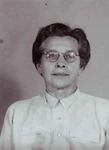
|
1969 | 1972 | 7 | ČSNS | ||
| 1972 | 1976 | 8 | |||||
| Jaroslav Kubera (1947–2020) |

|
2017 | 2020 † | 20 | RS | Died in office. | |
| Iveta Radičová (1956–) |

|
2020 | Incumbent | RS | |||
Building[]
When the Czechoslovak Republic was founded in 1918, there was an urgent need for various public buildings. A new parliament and several ministries were planned to be built at Letná Hill, later to be supplemented by the State Gallery and Masaryk Library. In 1928, a competition was announced for the parliament building, won by architect Josef Štěpánek. However, financial constraints due to the Great Depression prevented its construction. After the Nazis came to power in Germany in 1933, spending was instead focused on armaments production and fortifications. On Letná Hill, the government considered the construction of bomb shelters.
After World War II, politicians returned to the idea of the parliament at Letná Hill. In 1947, a new design competition was announced, which was won by František Čermák and Gustav Paul. His design was a neo-Baroque building with a dome inspired by the U.S. Capitol, as an homage to the United States which had liberated Prague. The cornerstone of the Federal Assembly was laid in a public 1948 ceremony by President Edvard Beneš. Construction lasted until 1955, and the first session in the new building took place on 20 October 1955.
The 13,800 square metres (149,000 sq ft) building is designed in neo-baroque style. Its interior, completed in 1958, was also designed by Čermák, who focused on every detail: chandeliers, lamps, handles, windows, and furniture. The Senate chamber is decorated by a copy of Alphonse Mucha's Slav Epic cycle No.20: The Apotheosis of the Slavs, Slavs for Humanity. The building is preceded by Švehla Square (Švehlovo Náměstí), named after the interwar politician and Prime Minister Antonín Švehla, and Patton Avenue (Pattonová), which are used for military parades. Švehla Square is often used for large demonstrations. Letná Park is located behind the Federal Assembly, and is conceived more as an area of recreation, leisure and outdoor sports practice.
